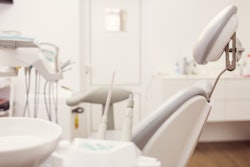
Dental benefits in Medicare Advantage (MA) plans are common but costly. Even with these benefits, low-income MA beneficiaries still face cost-related barriers to accessing these services, according to a study published in Health Affairs.
The U.S. Centers for Medicare and Medicaid Services (CMS) should measure and monitor the generosity, quality, and equity of supplemental benefits for low-income beneficiaries in MA. Additionally, the CMS should consider tying rebate payments to the quality and equity of these benefits, the authors wrote.
"We found that regardless of plan benefit generosity, low-income beneficiaries were more likely to report dental, vision, and hearing unmet needs because of cost," wrote the authors, led by Avni Gupta, PhD, of the Commonwealth Fund (Health Aff, Vol. 43:10, pp. 1382-1399).
The research team used data from the 2018-19 Medicare Current Beneficiary Survey, a U.S. national survey of MA and traditional Medicare beneficiaries. They linked beneficiary data, including residential county and MA plan identifiers, to plan benefit and star rating data.
The study used dental, vision, and hearing benefit files in addition to plan type and star-rating data. Logistic regression was applied to estimate the odds of unmet needs due to the cost of these services, with marginal effects reported as percentage point changes.
The final sample included 4,659 beneficiaries across 941 MA plans, with an average of 51 beneficiaries per plan. Among those not enrolled in standalone plans, 65% had at least one dental benefit. More than 50% had incomes above 200% of the poverty level and at least 22% were in the highest star-rated plans, according to the results.
Low-income beneficiaries were more likely to report unmet needs due to cost, especially in dental care. Specifically, 10.8% had unmet dental needs. Those with incomes at or below 200% of the poverty level were significantly more likely to report unmet needs. Adjusted results showed that low-income beneficiaries were 6.2 percentage points more likely to report dental unmet needs.
However, enrollment in higher star-rated plans was linked to fewer unmet dental needs, reducing this by 7.9 to 9.4 percentage points. Enrollment in the highest star-rated plans also reduced income disparity in dental unmet needs by 19.9 percentage points, according to the results.
The study, however, had limitations. While sampling weights were used for national estimates and the response rate was high, the results may not have fully captured the experiences of all MA enrollees, the authors added.
"Policy makers should consider monitoring supplemental benefits for equity and access, and they should assess the value added by quality bonus payments to high-rated plans for beneficiaries' access," they wrote.




















